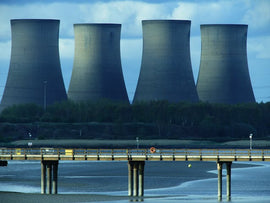CNBC's Sam Meredith is reporting on Earth being near the brink of key warming threshold.
The World Meteorological Organization (WMO) highlighted a year of unprecedented climate extremes in its "State of the Global Climate" report for 2023, signaling the planet's perilously close approach to the 1.5°C warming threshold outlined in the Paris Agreement. Last year, the Earth experienced its hottest year on record, marking a decade of unparalleled warmth, with the global average temperature nearing 1.5 degrees Celsius above pre-industrial levels. This threshold is critical as beyond it, climate impacts become severely detrimental. The report underscores record-breaking levels of greenhouse gas emissions, ocean heat and acidification, sea level rise, glacier retreat, and Antarctic sea ice loss. These changes signal an urgent call to reduce greenhouse gas emissions, with renewable energy generation emerging as a key hopeful avenue, witnessing a nearly 50% increase in capacity additions in 2023. The WMO's findings, echoing a "Red Alert" for immediate action, reflect a planet at a tipping point, demanding significant shifts toward sustainable energy and land use to mitigate the accelerating pace of climate change.
If this story inspires you that there are awesome solutions to solve climate change, check out our Ursa Nova marketplace to discover brands that are making a positive impact!
Source: CNBC
https://www.cnbc.com/2024/03/07/the-ai-industry-is-pushing-a-nuclear-power-revival-partly-to-fuel-itself.html



